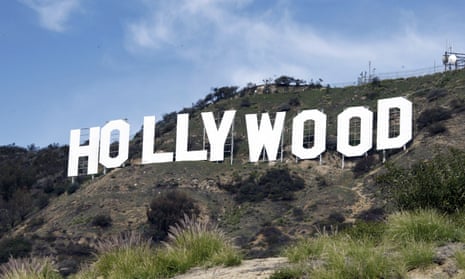Television writers are crowdsourcing information about their salaries in a Google spreadsheet, in the latest instance of workers attempting to address racial and gender discrimination through anonymized transparency.
Hundreds of salaries have been entered into the spreadsheet, which asks writers to “help us achieve parity by sharing any info you are willing to”. Contributors have entered data points including their job title, gender, whether or not they are a person of color, and how much they were paid per episode. Though the Guardian is not able to verify the salary data, the document offers some insight into possible pay disparities.
According to the spreadsheet, for example, a white male co-executive producer earned $25,000 per episode on a show, while a non-white female co-executive producer working on a show produced by the same studio and airing on the same network earned $10,000 per episode.
In another case, a white woman reported earning $14,000 per episode as a co-producer of a show, while a non-white, female co-producer on a show produced by the same studio and airing on the same network earned $10,000 per episode.
“TV female writers trying to seek parity for our sisters of color,” tweeted Audrey Wauchope, a writer for Crazy Ex-Girlfriend who shared a link to the document on Twitter but said that she had not created it. “We all sit at the same table and do the same work.”
Google doc of TV Writer's Salaries. Wage shouldn't be taboo we need to support each other so we all get paid according to experience and nothing else. Please input and share, including your experience level! https://t.co/4awofXnR18 #equalpay #womeninfilm
— Karen Nielsen (@KD_Nielsen) January 24, 2018
The spreadsheet began circulating this week amid an industry-wide conversation about sexism, sexual harassment and pay inequality. Several actors spoke out about the gender wage gap on the red carpet at the Golden Globes – an issue epitomized by subsequent reports that Mark Wahlberg was paid $1.5m for reshooting scenes in All The Money in the World, while co-star Michelle Williams was paid just $1,000.
The document includes entries from all levels of television writers, from executive producers/showrunners earning five-figures per episode to writers’ assistants earning less than $1,000 per week without benefits.
The person who created the spreadsheet told the Guardian by email that they want to remain anonymous: “I’m worried if I ‘out’ myself I may get a reputation with the studios.”
A second spreadsheet collecting information about television actors’ salaries is also circulating, though it has attracted far fewer entries.
“The whole point of this exercise to me ... is to pierce the veil of silence so that you can have some information when you negotiate,” said Melissa Silverstein, the founder and publisher of the website Women in Hollywood. “I think it would be really helpful for women to know what men get paid, because that’s part of the problem: men get paid more.”
The most recent analysis of diversity in film and television by the Writers Guild of America West, the union representing film and television writers, found that women and people of color “remained seriously underrepresented among the corps of writers”, with a persistent earnings gap between male writers and female writers, and white writers and non-white writers.
TV WRITERS SALARY - Please help us achieve parity by sharing any info you are willing to. Thanks!! https://t.co/kISLrAuKAQ
— Tina Gharavi (@Gharavi) January 23, 2018
The Guild contract establishes minimum compensation levels for writers at various levels in film and television, but individuals can negotiate higher rates.
“It’s this very blind process, and I’m certain that male writers are getting more than female writers,” said one woman of color who writes for a television show and asked to remain anonymous because she did not create the spreadsheet. “It’s very nice for us to be able share this information so we ... understand what our worth is.”
The TV writers spreadsheet is the latest crowdsourced document attempting to upend entrenched inequality by sharing sensitive information. Since October, the media industry has been convulsed by the “Shitty Media Men” list, a document that collected anonymous allegations of sexual assault and harassment against more than 70 men working in publishing and journalism.
An anonymous spreadsheet for women working in academia has compiled more than 2,000 accounts of harassment, while a spreadsheet circulated among Google employees collected salary and bonus information of about 1,200 employees. The Google document showed that male employees were paid more than women – an allegation that has also been made by the US department of labor but that Google has consistently denied.
The television writer who spoke with the Guardian said that seeing the information in the spreadsheet might influence her actions going forward.
“I kind of just let my reps do all the work,” she said, “but it definitely is going to make me think twice when an offer comes in and they’re trying to lowball me.”
